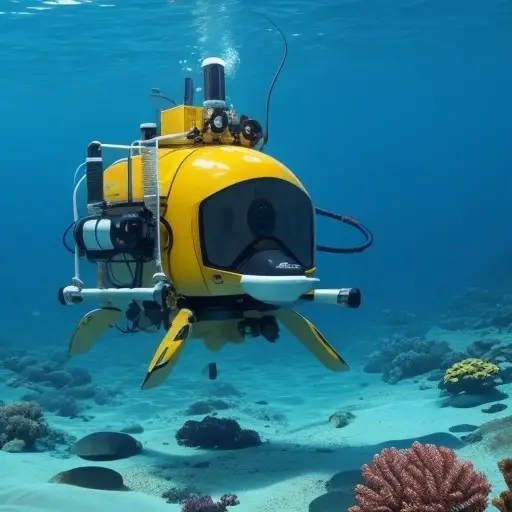Introduction
The ocean, a vast and mysterious expanse covering over 70% of our planet, remains largely unexplored. Traditional methods of ocean exploration have limitations in terms of reach, duration, and the ability to collect and analyze vast amounts of data. However, the advent of artificial intelligence (AI) is revolutionizing the way we study and understand the marine environment.
The Power of AI in Ocean Exploration
AI, with its ability to process large datasets, learn from patterns, and make intelligent decisions, is proving to be a game-changer in ocean exploration. Here are some key ways AI is being utilized:
- Autonomous Underwater Vehicles (AUVs): Equipped with advanced sensors and AI algorithms, AUVs can explore deep-sea trenches, study coral reefs, and monitor marine ecosystems without human intervention. These vehicles can collect data on temperature, salinity, ocean currents, and marine life, providing valuable insights into ocean health.
- Image and Video Analysis: AI-powered algorithms can analyze vast amounts of underwater images and videos to identify and classify marine species, detect pollution, and monitor changes in ocean habitats. This technology is particularly useful for studying elusive and endangered species.
- Predictive Modeling: AI can be used to develop predictive models that forecast ocean conditions, such as storm surges, algal blooms, and fish migration patterns. This information can help coastal communities prepare for natural disasters and optimize fishing practices.
- Data Analysis and Visualization: AI can process and analyze massive datasets collected from oceanographic instruments, satellites, and marine research vessels. This enables scientists to identify trends, patterns, and correlations that would be difficult to detect using traditional methods.
Challenges and Future Directions
While AI offers immense potential for ocean exploration, there are also challenges to be addressed. One significant hurdle is the need for large and diverse datasets to train AI models effectively. Additionally, ensuring the reliability and accuracy of AI-driven systems is crucial, especially when making critical decisions about marine conservation and resource management.
Looking ahead, the future of ocean exploration is bright with the continued development of AI technologies. We can expect to see even more advanced AUVs, improved image analysis capabilities, and more sophisticated predictive models. As AI continues to evolve, it will undoubtedly play a vital role in unlocking the secrets of the ocean and protecting its delicate ecosystems.
Conclusion
AI is transforming the field of ocean exploration, enabling scientists to delve deeper into the mysteries of the marine world. By leveraging the power of AI, we can gain a better understanding of ocean health, discover new species, and develop sustainable strategies for marine resource management. The future of ocean exploration is exciting, and AI is at the forefront of this scientific revolution.





